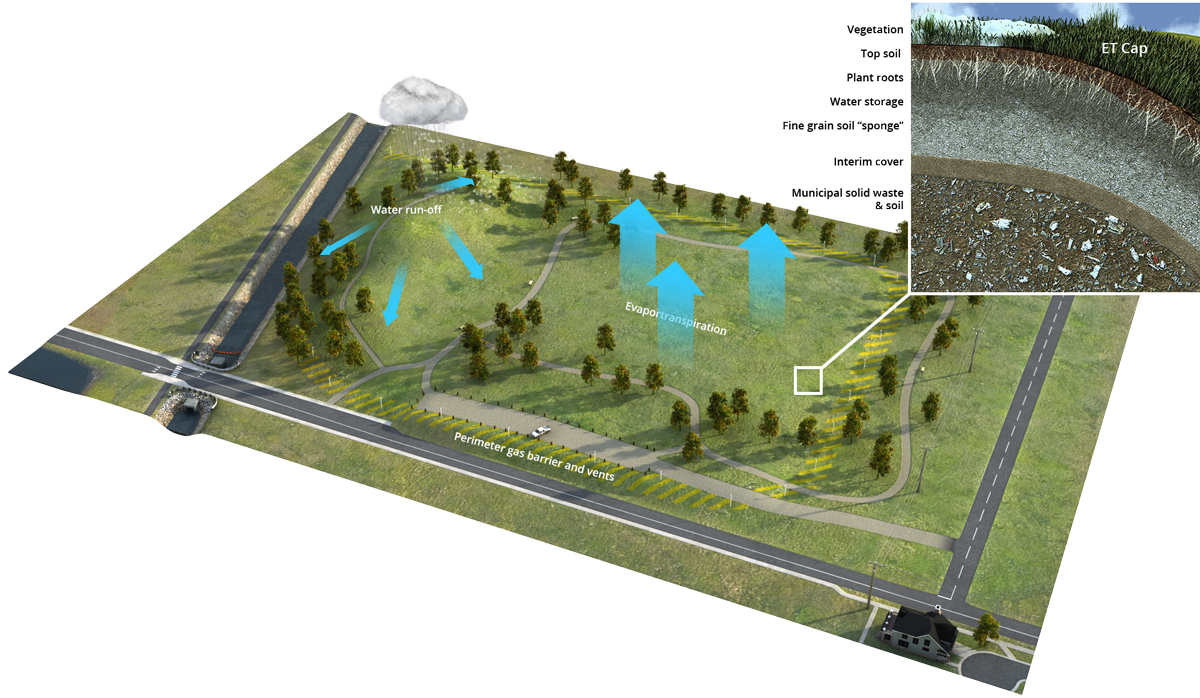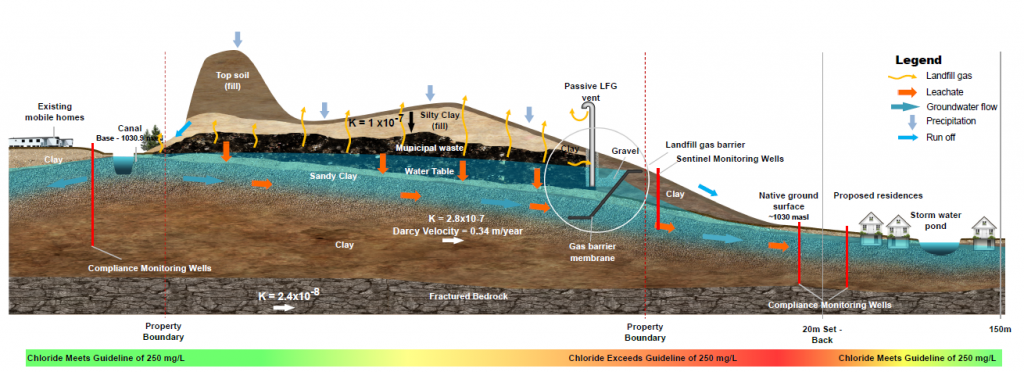Cirrus is committed to being a leader in scientific research and experimental development. Our research team is constantly searching for new solutions to old problems.
Landfills and Unregulated Dump-sites
Operating landfills, non-operating landfills and unregulated dump-sites are ubiquitous across western Canada and around the world. As the world urbanizes, the demand for new land and development is always increasing. The result is that many people are living closer and closer to waste sites. Our environmental professionals are committed to understanding how these complex sites change over time, along with strategies and innovative technologies to mitigate their impact on human health and the environment. In fact, we have turned much of our work into real world solutions, like designing and constructing an innovative Evapotranspiration Cover (ET) for a non-operating landfill in Western Canada – reducing construction costs, utilizing local indigenous soil and plants and providing new park space for nearby residents. We have also implemented novel landfill gas mitigation assessment and mitigation strategies at unregulated dump-sites that help keep adjacent communities safe. Most notably our innovative ideas and technologies are being employed by real-estate developers as part of long-term, sustainable land development strategies.


Conceptual site model showing peak groundwater elevations, flow and impact resulting from rising water levels, links to climate change are being evaluated.
Climate Change and Hydrologic Stationarity
The effects of climate change on the global hydrological cycle is matter of supreme importance. Understanding and predicting how water moves across the planet affects everything from severe weather patterns, floods, droughts, erosion to surface water and groundwater resources. Cirrus is committed to understanding how changes in global hydrological stationarity may impact the local environment in Alberta – particularly seasonal groundwater level fluctuations in and around waste sites. Our research and experimental development in this area focuses on: innovative tools and techniques for collecting environmental quality data, continued development of our Decision Support Site Model (DS2M) to model and better understand the water movement in and out of non-operating landfills. We anticipate that our work will support new landfill systems and make waste sites more resilient against climate change and extreme fluctuations in the global water cycle
